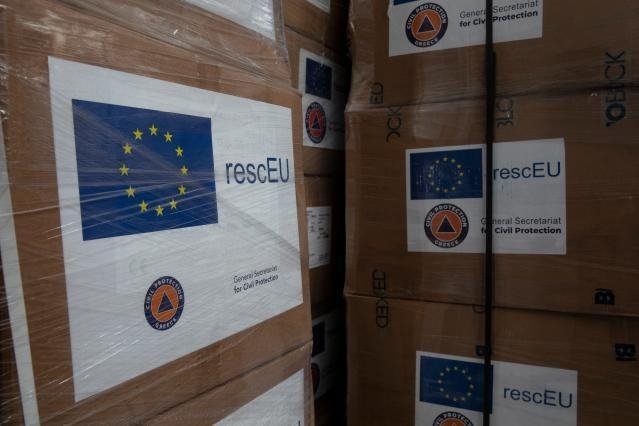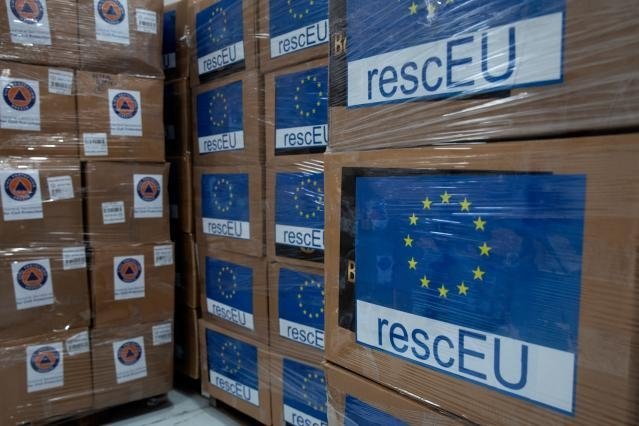Following a request for assistance from Serbia, the EU is sending 500,000 FFP2 and FFP3 protective facemasks, 540,000 medical gloves, 49,200 protective overalls, 49,200 cover shoes for overalls, and 5,500 goggles from the rescEU medical equipment reserve hosted in Greece. The European Commission finances 100% of the assets, including storage and transport.
” Already in its first year the rescEU medical reserve keeps growing and becoming more effective. With more than one million high quality masks, ventilators and other personal protective equipment delivered, rescEU has helped nine countries, both within and outside the EU, in the fight against the coronavirus. We aim for the new European medical stockpile to grow even more in the year to come in order to support countries in their efforts to overcome this global pandemic,” said Commissioner for Crisis Management, Janez Lenarčič.

Serbia had already benefited from the rescEU medical reserve in July, by receiving 10,000 FFP2 masks.
Via rescEU, so far more than one million FFP2 and FFP3 protective facemasks have been delivered to Italy, Spain, Croatia, Lithuania, as well as North Macedonia, Montenegro and Serbia. The first 30 ventilators were sent to Czechia in September and are now on their back to the rescEU warehouse in Romania.
The reserve was initially hosted by Germany and Romania, who were joined in September by Denmark, Greece, Hungary and Sweden also became hosting countries. More Member States are expected to join as hosts in early 2021.
Background
The strategic medical reserve is part of the wider rescEU reserve, including other assets such as aerial firefighting and medical evacuation means. The rescEU reserve constitutes the last resort layer of the EU Civil Protection Mechanism, which can be activated for all type of natural and man-made hazards. EU Member States, the UK (during the transition period), Iceland, Norway, Serbia, North Macedonia, Montenegro and Turkey participate in the Union Civil Protection Mechanism.
The rescEU capacity can include different types of medical equipment, such as protective masks or medical ventilators used in intensive care, and is constantly replenished. The reserve is hosted by several Member States who are responsible for procuring the equipment.
The Emergency Response Coordination Centre then manages the distribution of the equipment to ensure it goes where it is needed most, based on the needs expressed by countries requesting EU assistance under the Union Civil Protection Mechanism.
For more information




